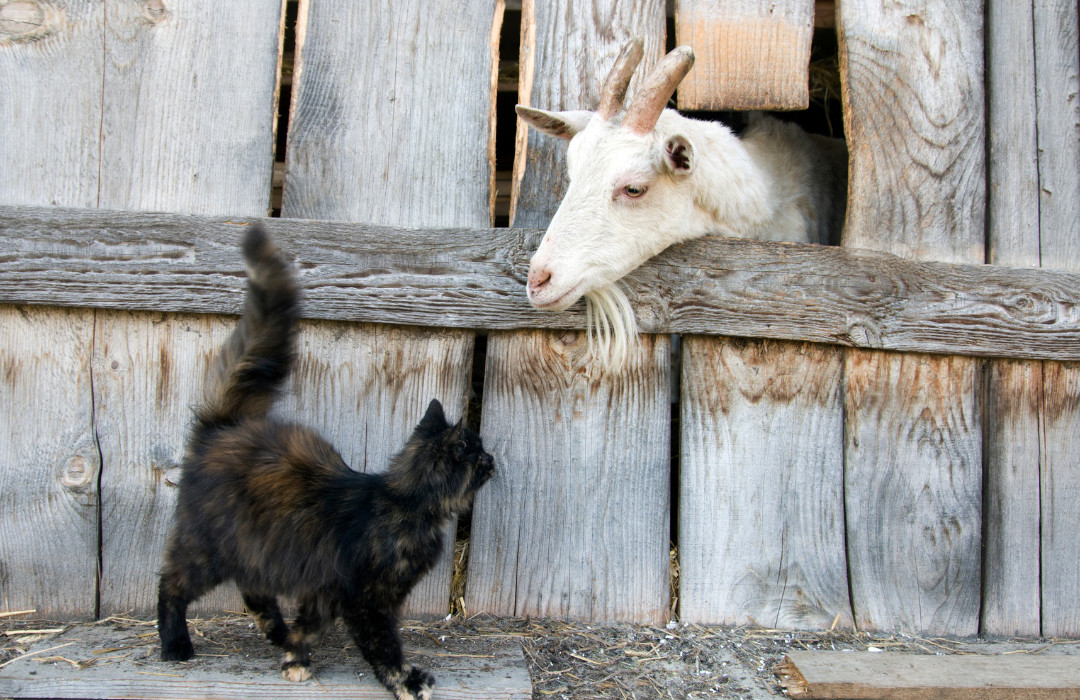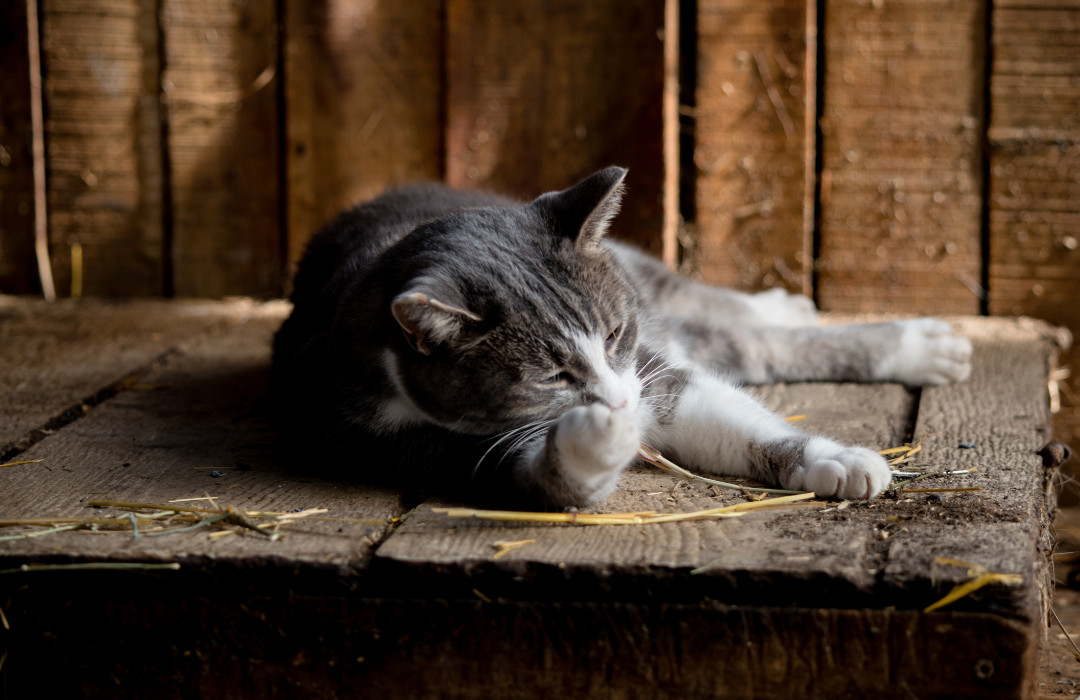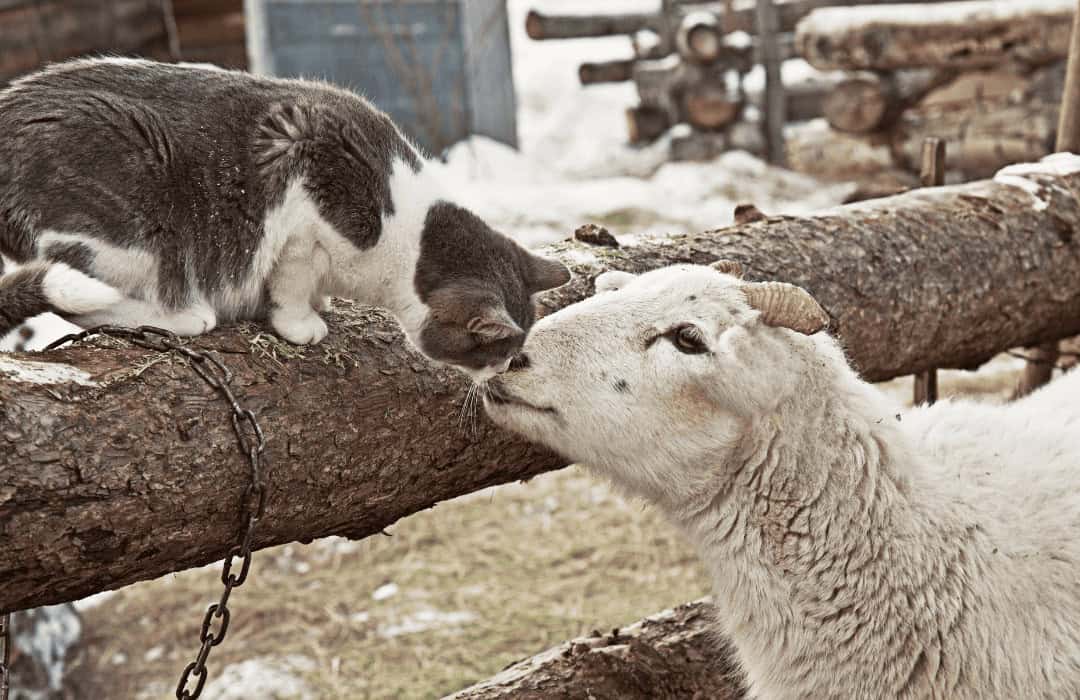Looking for a new employee to join the team... well check out the SCAR Working Class Cat Program!
Working Class Cats as the perfect new addition to your team to deal with whatever pests interfere with your inventory. These cats are not house pets, they are strictly business! And solving your business’ rodent problem is their speciality!
If you think you have a good spot where a Working Class Cat could be put to work, please complete the form below and our team will be in touch shortly to discuss the program.
FAQs
1. Where do these cats come from?
Working Class Cats are cats that do not cope in a shelter environment and can not be rehomed as conventional family pets. These cats would love to spend their lives outdoors or in a factory/ barn type setting, helping you control your barn, warehouse, plant nursery, produce farm or other places where there are rodent and pest populations. These cats are often not social enough to live indoors as pets but they do a great job at deterring and controlling rodents. Every so often, one of these cats ends up in our shelters. Since they’re not ideal pets, we put them to work in local businesses doing what they do best.
2. Why adopt a working cat?
Working cats are a cleaner alternative to toxic pesticides; they’re less expensive, and more effective.
Here is what one Working Class Cat adoptee had to say: “After trying every deterrent in the book, we went old school and hired a working cat! I can only presume the 24-hour presence of our security guard, Bruce Wayne, has turned our factory into a forbidden zone for rats. Also, folks really dig being greeted by our cat when they enter the shop. The team at SCAR were with me every step of the way and offered so much support to help me get Bruce settled in his new environment. I couldn’t be happier!” Kate, Buninyong Garden and Rural Supplies
3. What if I’m not really a cat person?
Working Class Cats aren’t really into you either. All they want from you is a safe place to take shelter and regular food – otherwise, they’ll mind their own business. It’s unlikely that people with allergies will be affected by Working Class Cats, as these cats live outside and generally prefer not to come in contact with humans.
It is possible, with lots of patience, over time, for your working cat to get more social – especially if there are lots of other people in and around your business. If that happens, it won’t affect your cat’s effectiveness with rodent control. But he/she may start wanting some affectionate physical contact. Or she may just want to sit and talk. If that happens, and you prefer not to develop personal relationships with your employees, just let us know. We’ll rehome your cat into a more social environment, and give you a more aloof one instead.
4. What do I have to do to adopt a working cat?
Standard adoption process applies. All working cats are vaccinated, desexed, and microchipped. As the boss, your responsibility to your new employee is to provide daily food and clean water, shelter, and basic health care throughout the animal’s lifetime. (A nice framed certificate and gourmet dinner at their 10-year workplace anniversary would also be a lovely gesture).
5. What constitutes “shelter”?
There is no “perfect” shelter environment for these cats, but there are a few common requirements:
Enough space for the cat to separate him or herself from people, noise, and activity as they choose.
Shelter that will protect the cat from cold or wet weather. Working Class Cats aren’t fussy about décor. The shelter can be as simple as a DIY cat house, or as luxurious as you want it (see some shelter examples).
An appropriate place for the cat to go to the toilet. Cats need to have a place to bury their urine and faeces. A flowerbed, a sand box, or a litter box protected from rain are all good options.
6. Do all cats know how to catch rodents? What will they do with them?
Working Class Cats will all need a short adjustment period in their new environment before getting to work. Once on the job, you may find remains of rodents lying around. But rats are smart, and word spreads quickly that your business is no longer a safe place for pests. Before long, the mere presence of your working cat will be enough to keep most rodents away.
“Bobby was an amazing addition to our pest control measures. During his year with us, the number of mice we caught in traps dropped to just a handful. Since then he now even comes up to us for a chin scratch every now and again, he is really pampered in his new home and we love him.” Laura, Campbellfield
7. Is it a health hazard to have cats around a business?
Victorian law does not allow animals to be inside food service businesses, so if you run a restaurant, just don’t let your Working Class Cat inside. Their presence outside will be enough to deter rodents, and they probably won’t want to come inside anyway. (There are restaurants in Victoria currently deploying Working Class Cats effectively by providing shelter for the cats on a back patio.)
Otherwise, a vaccinated cat does not carry disease, and cats are fastidiously clean. We hope it goes without saying that ingesting cat faeces or faeces-contaminated material is a health hazard, so just, you know, don’t do that. (To be extra cautious, we suggest wearing gloves when cleaning your cat’s litter area, and washing your hands well afterward).
8. How do I get my new Working Class Cat used to their new location?
During the first few weeks of the Working Class Cat being in their new location, they must become acclimated so they know not to run away. Read our Working Class Cat Acclimation sheet below to ensure the cat becomes bonded to their new location and stays where they are meant to.
9. What do I do if my Working Cat goes Missing?
Sometimes after their acclimation period, the cat may go missing. Read our guide on what to do if your Working Class Cat goes missing below.
10. What about wildlife?
Working Class Cats will only be adopted out to businesses and homes in populated areas away from vulnerable populations of wildlife such as conservation areas.


If you are interested in adopting a Working Class Cat, please fill out the online form below and we will be in touch with some more information for you.
Guides for Working Class Cats

Fun Facts You Should Know
Help Our Working Cats!
By making a donation Second Chance Animal Rescue, you make it possible to continue offering our lifesaving Working Class Cat Program, which enables more felines to find their perfect homes.
Learn More
Want to know more about SCAR? Visit our FAQs Page
Until one has loved an animal a part of one’s soul remains unawakened.



